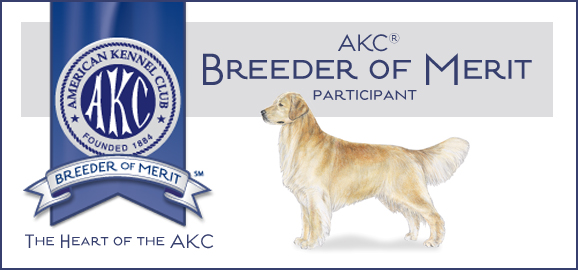More Than Just A Single Temperament Test
Temperament testing is very important to Summer Brook. Though we do formal testing, our program goes far beyond a one time test. We evaluate our puppies for 7 straight weeks . We don’t depend on a single temperament test that evaluates how a puppy happens to be doing in a 5-10 minute test.
The Volhardt Temperament Test
The most widely used temperament test is the Volhardt test. It is a good test for many breeders. However, we’ve found that for breeders like us that make great efforts toward providing an enriching environment, its use is limited.
For the Volhardt test to be used as it was created to be, puppies need to be raised in a typical breeder setting. The typical setting gives much more limited environmental exposure outside the litter area. Otherwise, the results are scewed and give the impression that puppies are more confident than they really are.
For example, the touch sensitivity section of the Volhardt test evaluates a puppy’s response to having his paws held. You hold them and count the number of seconds before the puppy pulls his paw away. A middle of the road puppy will allow his paws to be squeezed for 3-6 seconds. Because our puppies have had their paws held weekly since birth during nail trimmings, all of them (without exception) will allow you to squeeze them much longer giving them the lowest score on this exercise.
The same holds true with the sound sensitivity where you bang a pot and record the puppy’s reaction. Someone has intentionally dropped metal bowls close to our puppy pen since puppies were 3 weeks old.
By 7 weeks, our puppies will react as if they were by nature overly confident puppies. In actuality, they have just overcome some of these more basic fears. This test for our puppies will not give a true evaluation of a puppy’s inborn temperament.
Our Use of The Volhardt Temperament Test
For us, the Volhardt test has taken on a new purpose. We use it to evaluate areas where we might need to work with particular puppies. For instance, some puppies shy away during the portion of the Volhardt test where you pop an umbrella up. For these puppies, we’ll work on overcoming that fear. A couple of years ago, a DVD called Puppy Culture came out. This DVD teaches how to raise your puppy from birth to 12 weeks. We absolutely love the fact that they recommend using the Volhardt test for the same reasons as us.
Summer Brook’s Evaluation Process
So how does Summer Brook evaluate puppies?
The evaluation process starts at birth. We observe which puppies fight for the mom’s tits the hardest. We notice which ones wiggle most in the scales while we weigh them.
The evaluation process becomes more intensive at about 4 1/2 to 5 weeks. We begin taking them to various places in our home. Our team exposes them to things they’ve never experienced.
We learn even more about the puppies as we begin training them to go in and out a doggy door.
As we watch them learn to navigate steps, we gain even more insight.
Our team evaluates how puppies interact with litter-mates and how they handle being separate from litter-mates.
The doggy door training alone indicates which puppies are the leaders, which ones are fearful, which ones are slow, which ones are cautious.
We also notice how each puppy first approaches steps, how they respond to noises, which ones stay closest to us, which ones sit and wait for the competition of litter-mates to diminish before climbing in a lap, which puppies are friendliest to strangers, which puppies resist a crate, which puppies are most aggressive to get food, and the list goes on.
Our observations are recorded on a daily basis. Puppy Evaluation is a huge part of our daily work. It is vital to matching them to families. It is also important in order to move puppies through our socialization program. How would you know what a puppy needs in order to be properly socialized if constant evaluation wasn’t done? Our job of evaluating puppies is never ending until our puppies leave us. It’s not as easy as going through an entire litter in an hour with one test.

